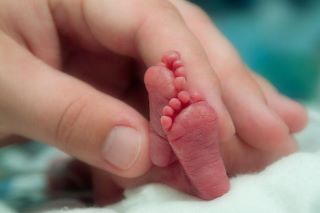
The researchers examined over 100 babies who were born before week 27 of pregnancy. They used magnetic resonance imaging (MRI) to observe the growth of the babies’ brains during the neonate period. When the children reached age six, the researchers screened them for ASD.
Of the preterm-born children, nearly 30 percent were later diagnosed with ASD, compared to just one percent of children in the general population. The preterm children with ASD were more likely to have had complications during the neonate period, like surgery, compared to peers who did not develop ASD. For children who went on to develop ASD, the MRI data from the neonate period showed diminished growth in the parts of the brain related to social contact, empathy, and language acquisition—all of which are found in ASD.
“Our study shows that environmental factors can also cause autism. The brain grows best in the womb, and if the developmental environment changes too early to a life in the atmosphere, it can disrupt the organization of cerebral networks. With new therapeutic regimes to stimulate the development of such babies and avoid stress, maybe we can reduce the risk of their developing ASD,” stated Ulrika Ådén, researcher at the Department of Women’s and Children’s Health at Karolinska Institutet.
This research is published in the journal Cerebral Cortex.



 © 2025 Unyte Health US Inc.
© 2025 Unyte Health US Inc.